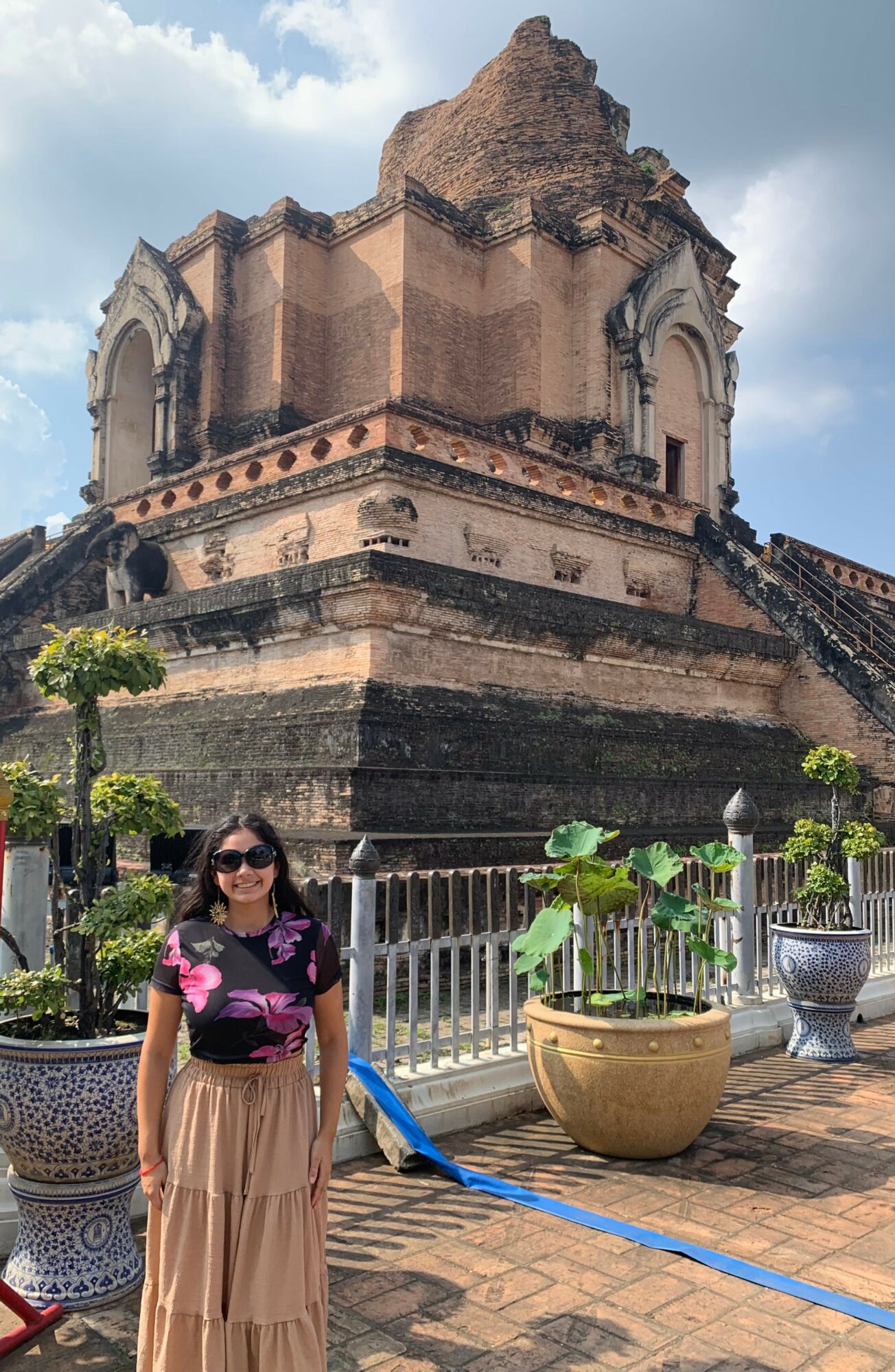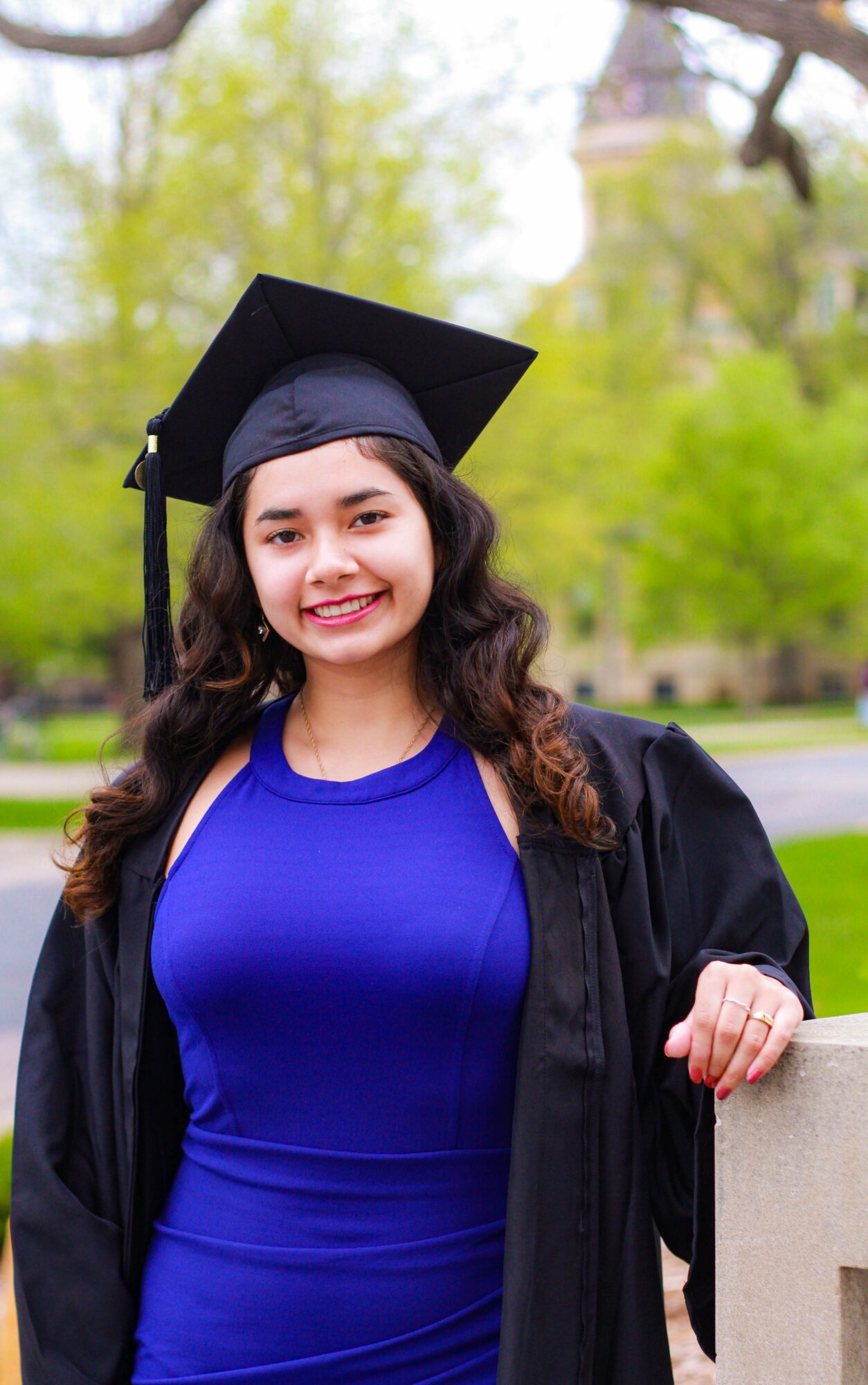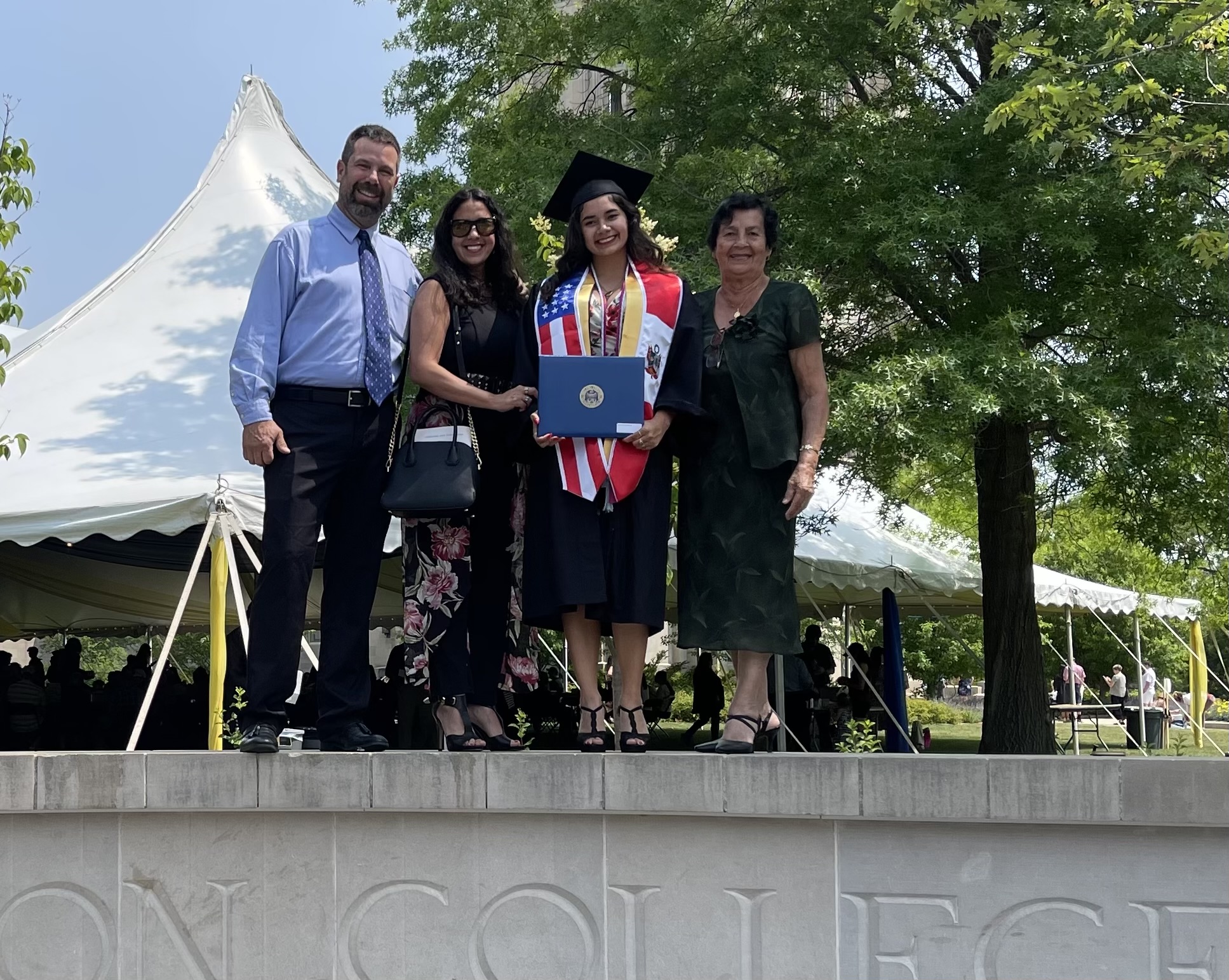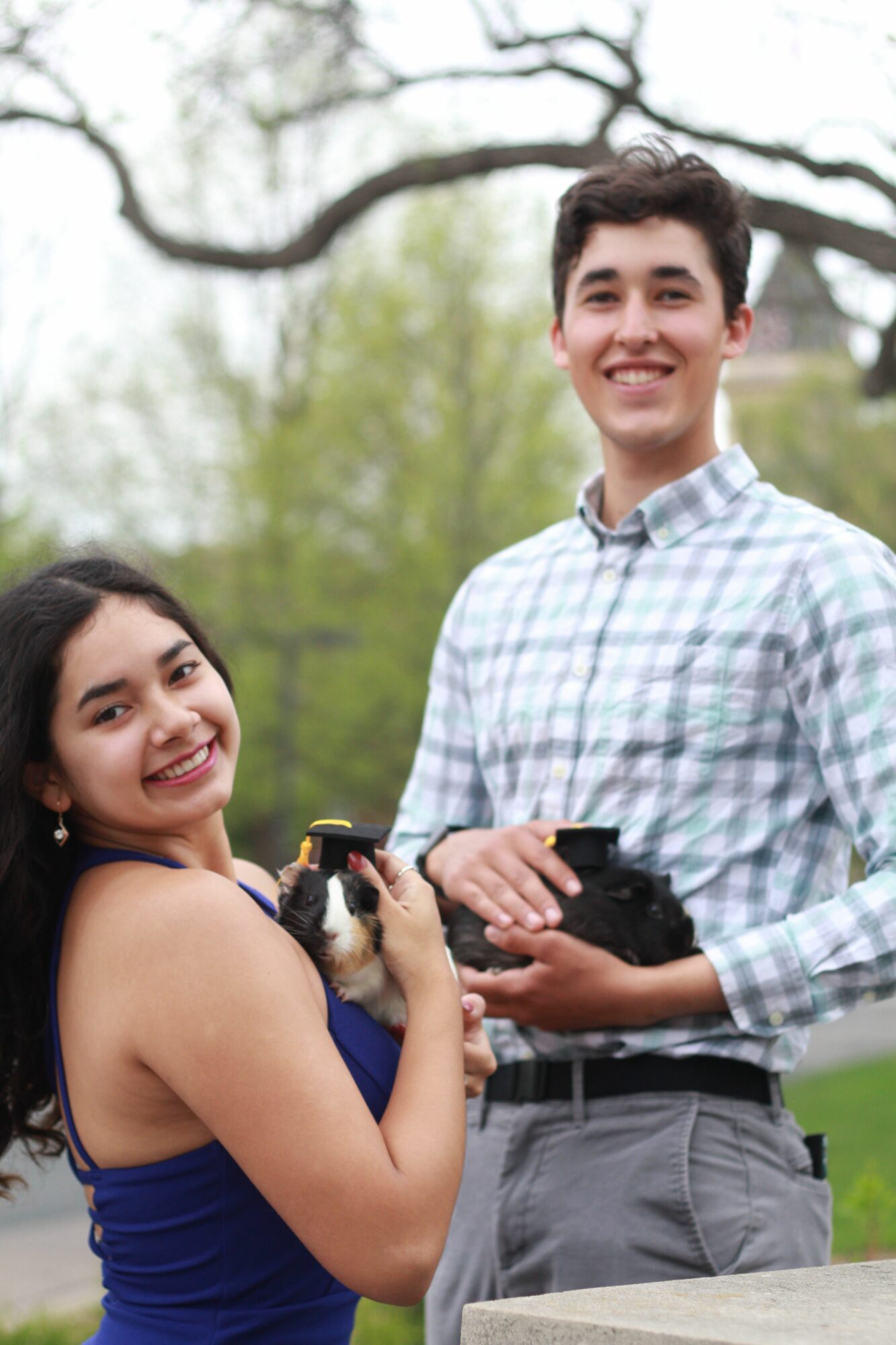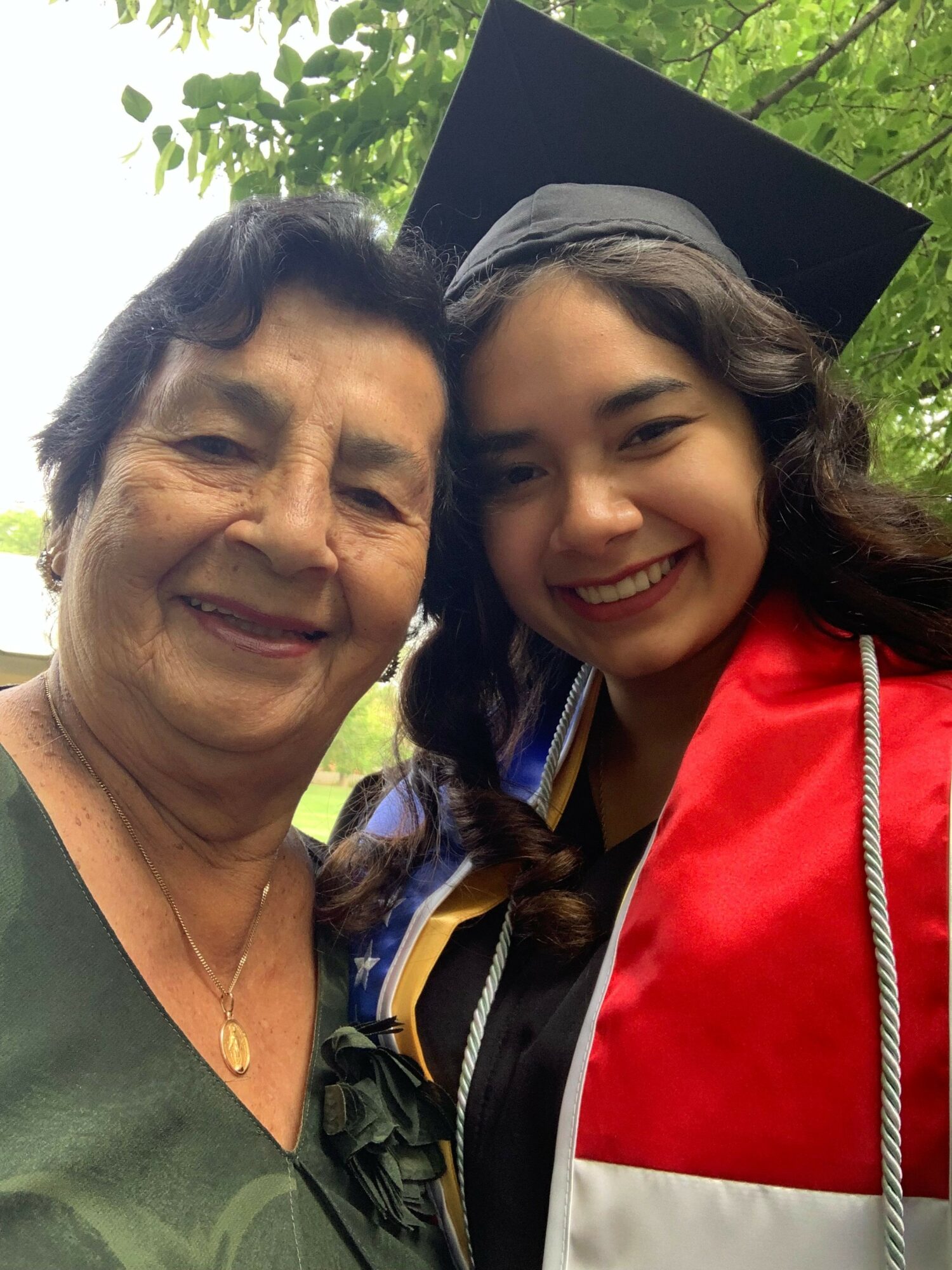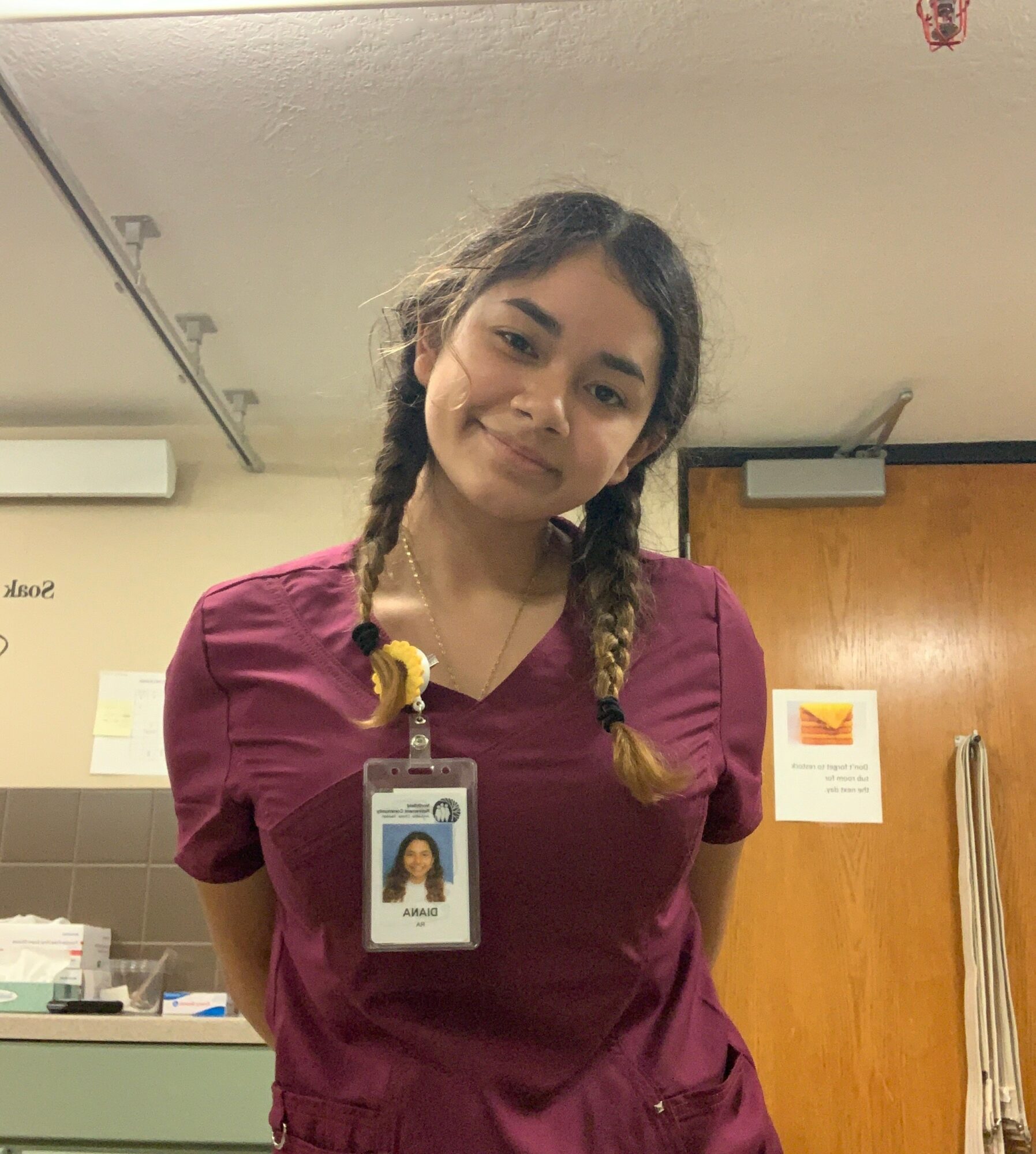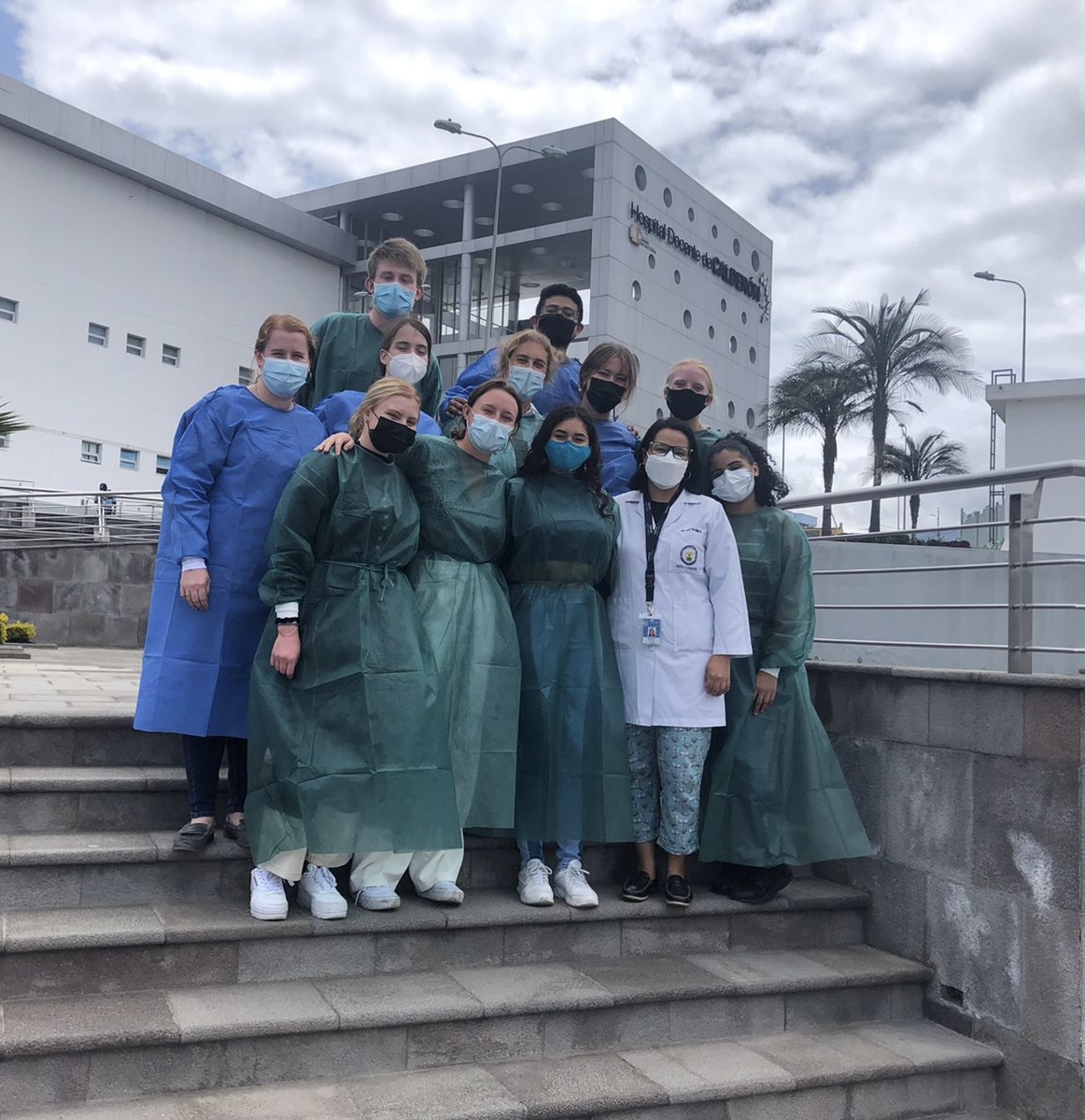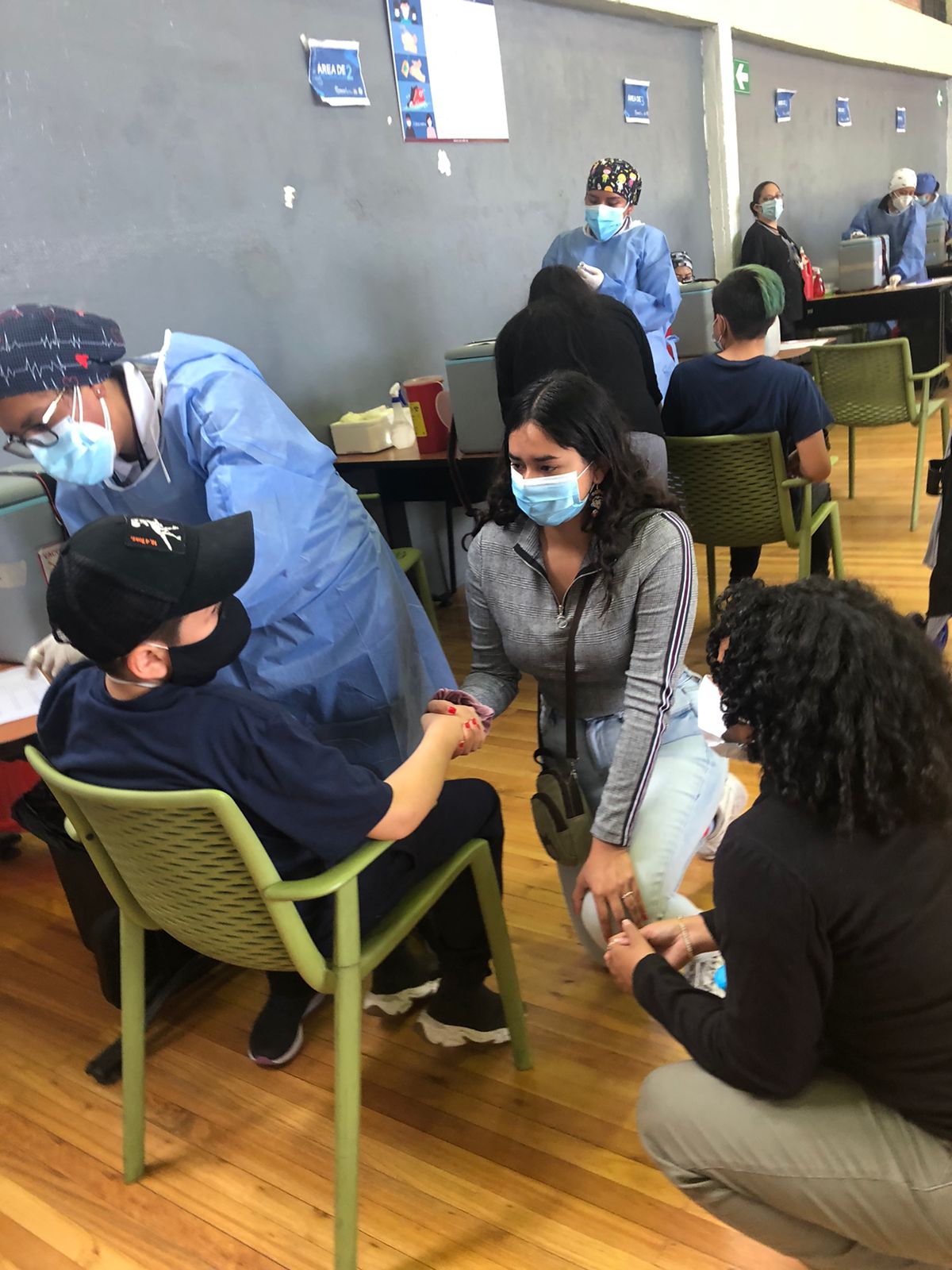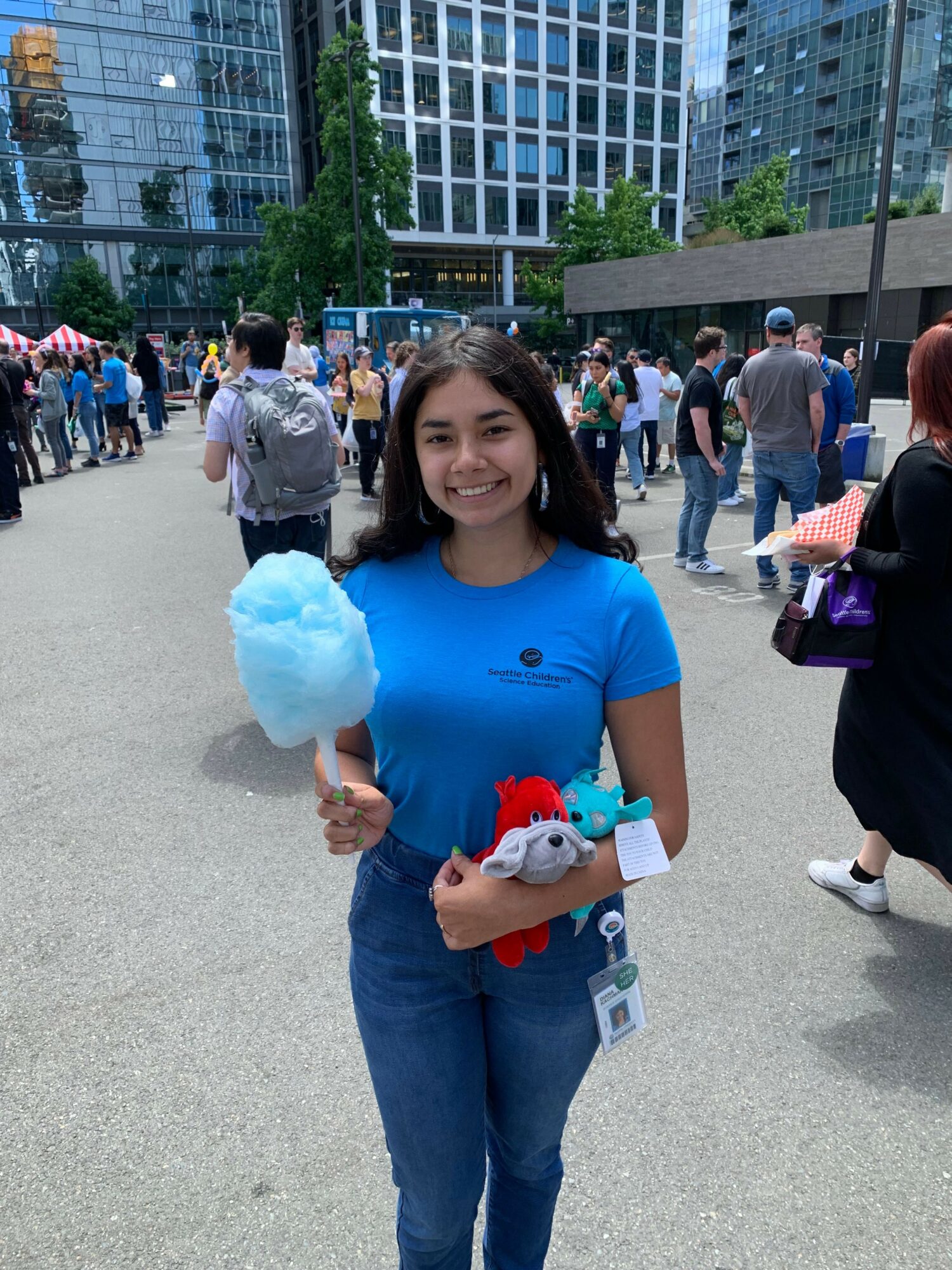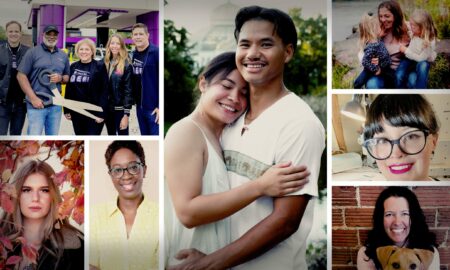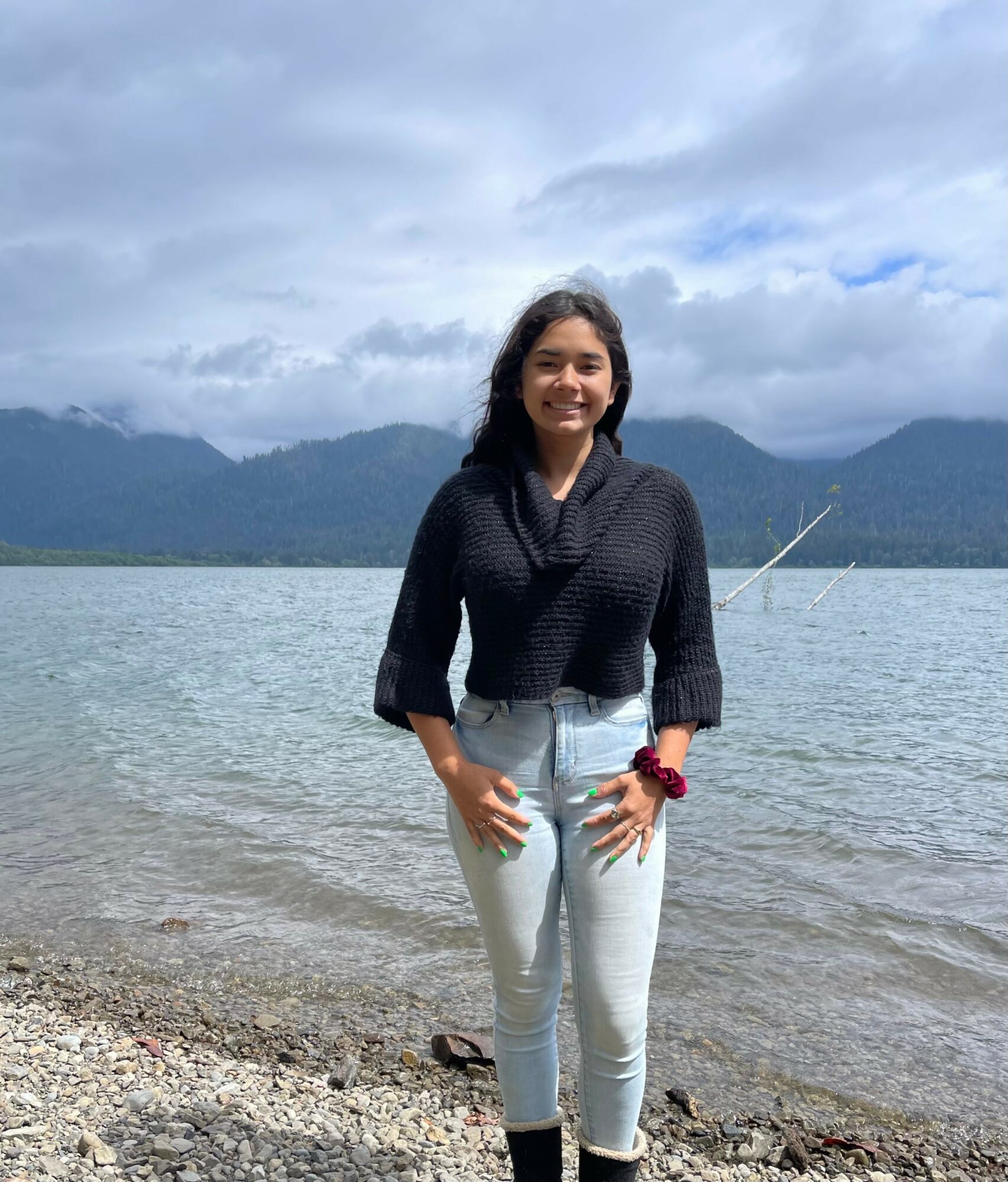

Today we’d like to introduce you to Diana Kachman
Hi Diana, please kick things off for us with an introduction to yourself and your story.
I grew up in Washington State as a serious bookworm. My dad would read to me every night and whenever I traveled to Peru to visit my family, I would make sure to pack as many books as possible. As I grew older, I stopped being read to and instead began to read to others. This was what I did when my grandmother developed dementia. I tried desperately to lift her spirits by reading to her. We wouldn’t make it through Little Women, but the time spent helping my grandfather care for her spurred my interest in healthcare and my strong passion for eldercare in particular.
When I first started volunteering at a retirement community in high school, I was in charge of reading newspapers to an elderly resident whose eyesight had weakened through the years. I learned that he had worked as a doctor, maintained a special interest in international news due to his former years of travel, and that he loved sweets. I would later begin running the movie theater for the residents as well, learning who loved Bond movies and who liked to host the after parties with tequila.
I moved to Minnesota to attend Carleton College in Northfield. There, I majored in English while still pursuing a background in healthcare because I felt that learning to listen to people’s stories and emphasize their importance would allow me to best serve others in my career. During my junior year of college, I studied public health and traditional medicine in Ecuador. It was the first time I traveled for education and professional development as all of my trips around Peru were for personal reasons. I was able to volunteer at a COVID-19 vaccination clinic, learn about sexual health as well as diabetes, and develop an independent study project focusing on traditional medicine and indigenous peoples. My experiences within Ecuador sparked a desire to branch out and gain more experience with different populations that tend to be underrepresented in healthcare. I had mostly focused on leading the Adopt a Grandparent organization, a group of volunteers coordinating with elderly residents of an in-town retirement home to visit them in person or send gifts such as hand-painted flower pots with succulents or cookies and letters during the COVID-19 pandemic. I decided to take a higher position of leadership in the Latin American Student Organization and to also mentor students in the Carleton Pre-Health Association about paths in healthcare.
I started working as a Resident’s Aide in a retirement home before gaining a Certified Nursing Assistant position in a long-term care unit within the local hospital. How much I was able to get to know the residents changed drastically as I went from overnight shifts at the retirement facility to day shifts at the hospital. My favorite experience, however, was working in in-home care during my senior year. I was assigned to a lovely couple. I would help with physical therapy exercises and help with puzzles for the husband and help cook and run errands for the wife. He had a sharp sense of humor and she had been an extremely talented baker, but told me that she baked less since her hands began to hurt. When I left to graduate and move away, she gifted me a large carrot cake with cream cheese frosting.
Upon graduation, I received a Weitz Fellowship to move to Nebraska for one year to work with Autism Action Partnership, a non-profit that works with people with autism. I gained experience working with this underserved population outside of a strictly clinical environment. I spent most of my time working with children on the spectrum who tend to elope, enrolling them in the Project Lifesaver program to give them a bracelet that allows the police to find them when they run away and reunite them safely with their family. I spent a lot of time translating for the Spanish speakers and discovered the accessibility barriers to proper long-term assistance, something that reminded me of my work with elderly residents who struggled to find proper long-term care due to coverage as well.
Now, I am at my desk in the Community Health Empowerment office at the MAP (Migrant Assistance Program) Foundation. I am a Luce Scholar for 2024-2025, a fellowship that places professionals in different fields in individualized work placements in Asia. I have been placed in Chiang Mai, Thailand and work for MAP to provide STD and TB testing and education to migrants from Myanmar living in Thailand. While Thailand has a universal healthcare system, there are still barriers to access, particularly for vulnerable groups such as refugees, elderly people, and those with chronic illnesses or do not have reliable transportation. Therefore, I am developing a research project on healthcare access and eldercare resources for elderly Burmese migrants with the hope that this can bring attention to their needs and give their individual stories a platform.
We all face challenges, but looking back would you describe it as a relatively smooth road?
My path into healthcare has not been a straight line. As a child, I always pictured myself going straight into medical school after college. Now, however, I see the value in gaining unique and meaningful experiences inside and outside my field. I have developed my professional and personal skills through research opportunities, clinical experience, and work experience out of a healthcare setting. I was proud to join the Seattle Health Professions Education Program run by the University of Washington and be able to study diabetes education and prevention, including its disproportionate effects in communities of colour. I engaged in clinical simulations as an intern in the University of Minnesota Rochester Insight program. I was also happy to do something different and work at a non-profit to develop resources for the ASD community and intern at an Arts Camp in Alaska to provide isolated young people with exposure in the arts. Even though some of these formative experiences were outside of a hospital filled with patients, it has helped me learn more about different groups of people and how to understand others on a personal level.
I am also a first-generation college student, so I was not always aware of certain opportunities and financial resources that would have helped me on my path. Moving from Washington State to Minnesota was difficult and became even more so as I struggled to navigate college without knowing how to apply for further financial aid or where to find professional opportunities. Still, I am grateful for getting the chance to fight for my education as I knew it would lead to a more promising future for myself. That is not to say that I did not meet coworkers and college staff that had insensitive views and things to say about my race, gender, and background. But as I think back about dealing with that while juggling my jobs, studies, and organizations, I believe that I have been set up very well to keep fighting for what I want in my current position and in the future.
Alright, so let’s switch gears a bit and talk business. What should we know about your work?
I am a healthcare student and worker, and I am most interested in eldercare, narrative medicine, and serving at both a clinical and policy-changing level. Narrative medicine is the idea that medical professionals should be able to learn their patients’ experiences and stories and understand their perspectives in order to provide the most effective care. My background in English has helped me listen to those I work with, especially with elderly people who do not always have people to share with. I remember many stories from those I have cared for in my range of experiences in eldercare, from volunteering to retirement communities and hospitals to in-home care and research.
I am very proud of the research opportunities I have pursued. I interned at the Seattle Children’s Research Institute (SCRI) and shadowed the two doctors heading the research project in the support groups they led for parents of children with behavioural challenges. I then presented my experience in the research on using peer supports in behavioural parent training programs within underserved communities at SCRI and at the Carleton Undergraduate Research and Internship Symposium. During my study abroad in Ecuador, I conducted my independent study project on the need for an intercultural health system that integrates both traditional and western medicine based on interviews with indigenous medical professionals within Quito. With Carleton’s help, I presented this research at the Latin American and Latinx Studies Symposium at Rollins College.
I feel that my background and unique experiences set me apart from others, but at the same time, I think that those two things are what allow me to better connect with different people. I know who I am and am proud of that. I am someone who benefits from learning from other people, cultures, and stories in order to best work with and care for others. I grew up speaking Spanish and English and being a very proud Peruvian, I also am attempting to learn Quechua. Here in Thailand, I am learning Thai and Burmese. This is not only to immerse myself in the culture, but also so that I can make the people I interact with most comfortable communicating the way they want to. I believe that I can greatly benefit from learning from other countries’ cultures, especially surrounding the way they care for their elderly, and their healthcare systems, with the hope of continuing to provide the best care possible and one day bring about more system change for those who need it.
How do you think about happiness?
My family makes me happy. My parents and two dogs live in Washington, yet no matter where I am in the world, we call every couple of days and we make sure to plan to see each other. My Nini, my grandmother on my mother’s side, is my last living grandparent and I try to see her as often as possible as well. She stays with my parents in the US, my aunt in Canada, and my aunts in Peru throughout the year. She visited me in Omaha, Nebraska in 2023 and I felt incredibly responsible as a 22-year old adult to be trusted to take her around and have a good time. I saw her in Canada before I headed out to Singapore for our Luce Scholars orientation. And I can’t wait to see her again. I used to visit my family in Trujillo, Lima, and Ascope every summer break as a child until it became too expensive to continue doing that yearly. I think about them and how I want to make them proud all the time. Finally, my husband and our two pet guinea pigs make me happy. I’ve been with my husband since we were 14 and I’m so grateful that he came to Thailand for my fellowship with me.
Family makes me happy because they were the only constant in my life. When I had to fly to Peru as an infant due to my mother’s immigration status, my godparents and my mom’s entire family was there waiting for me, keeping me safe until we were able to come back. My biological father was neither caring nor present and my dad’s presence in my life as a role model taught me that blood means nothing, it’s about who sticks around for you. We celebrated my mom becoming a citizen together, celebrated work promotions, and my graduations. When we’ve struggled, we have also bore through that together. As I travel from place to place, my husband now comes with me, supporting my career in healthcare as I support his in conservation. I feel happy to have a sense of stability even as all of my ventures are just beginning.
